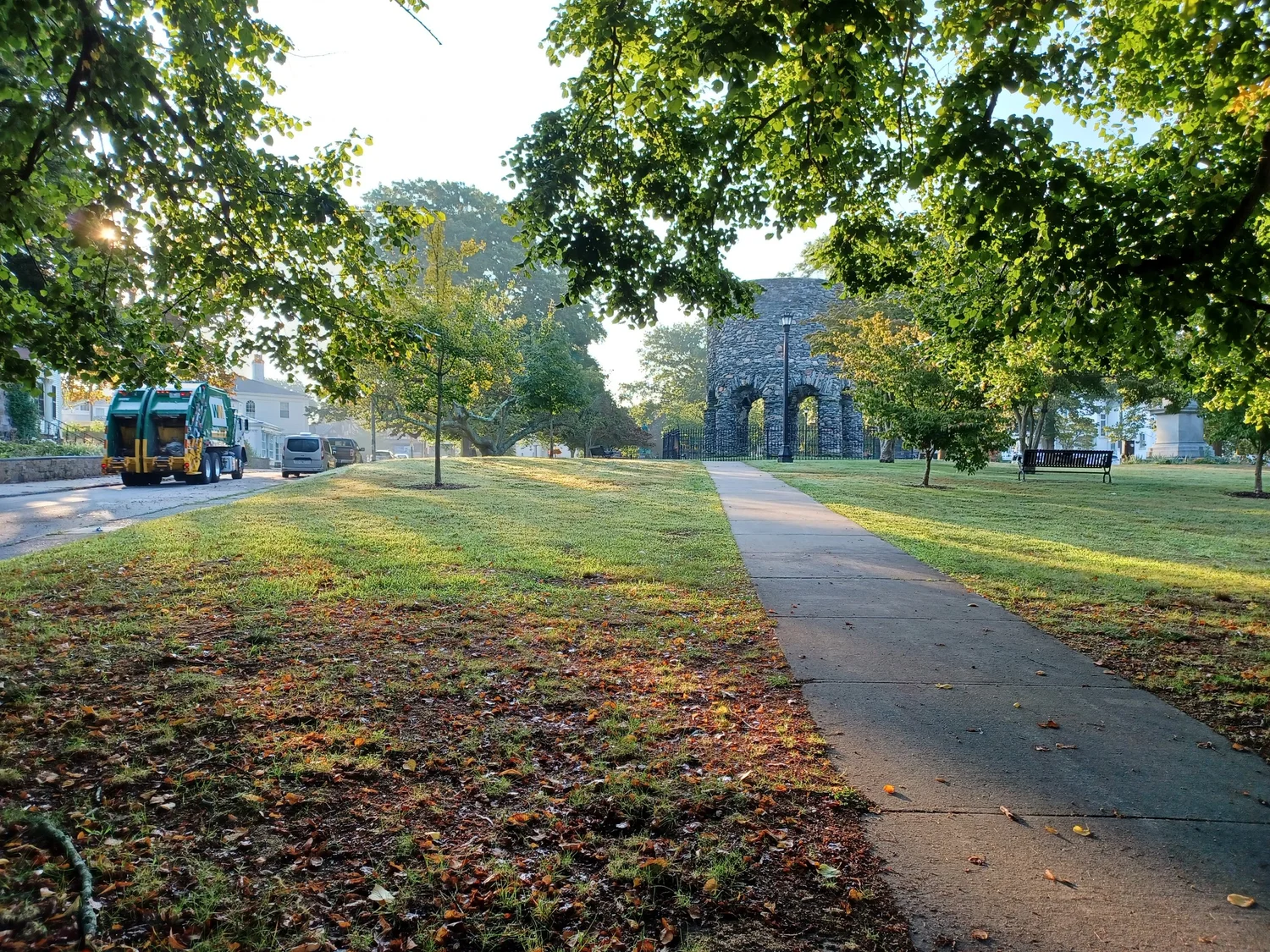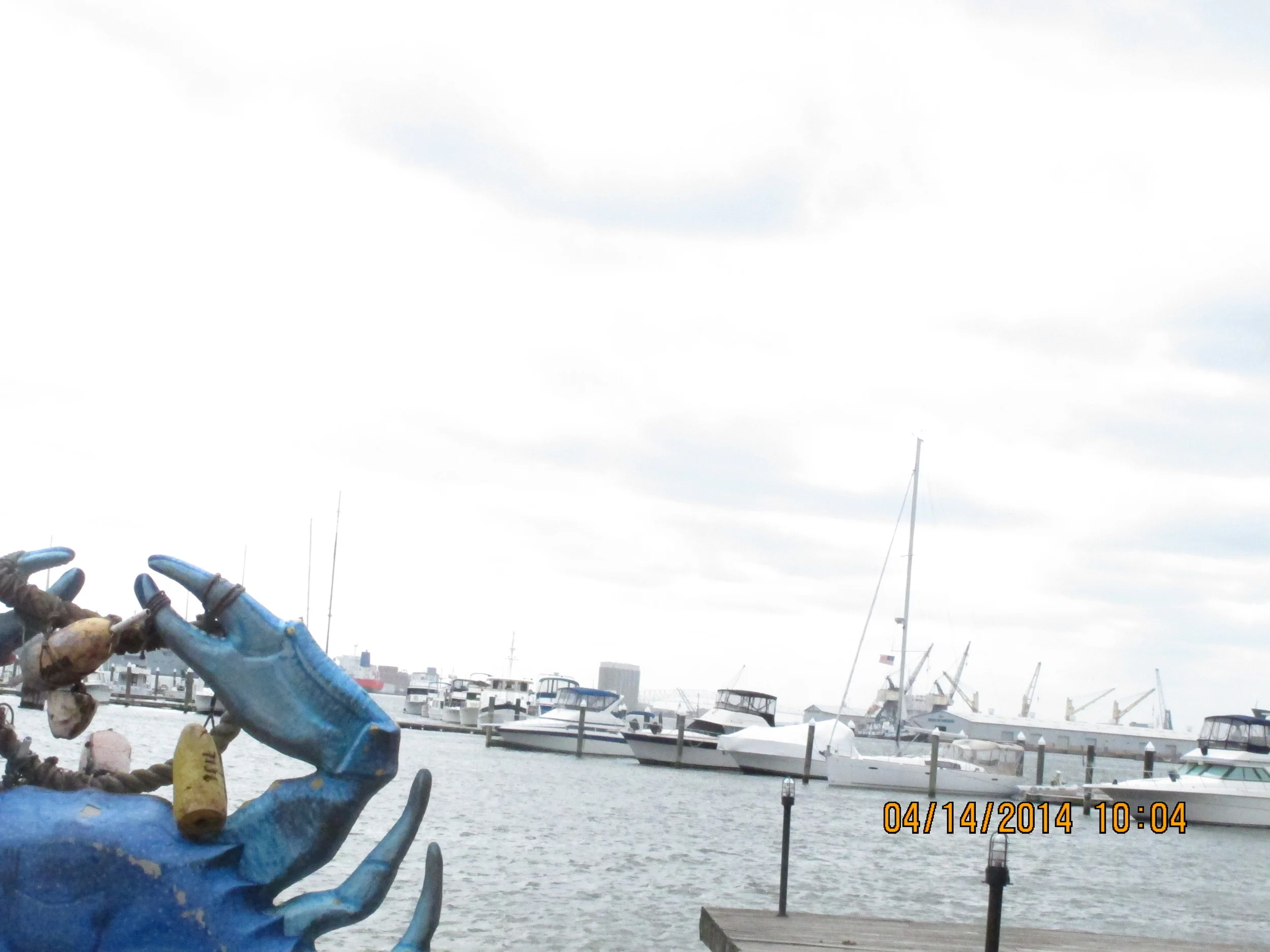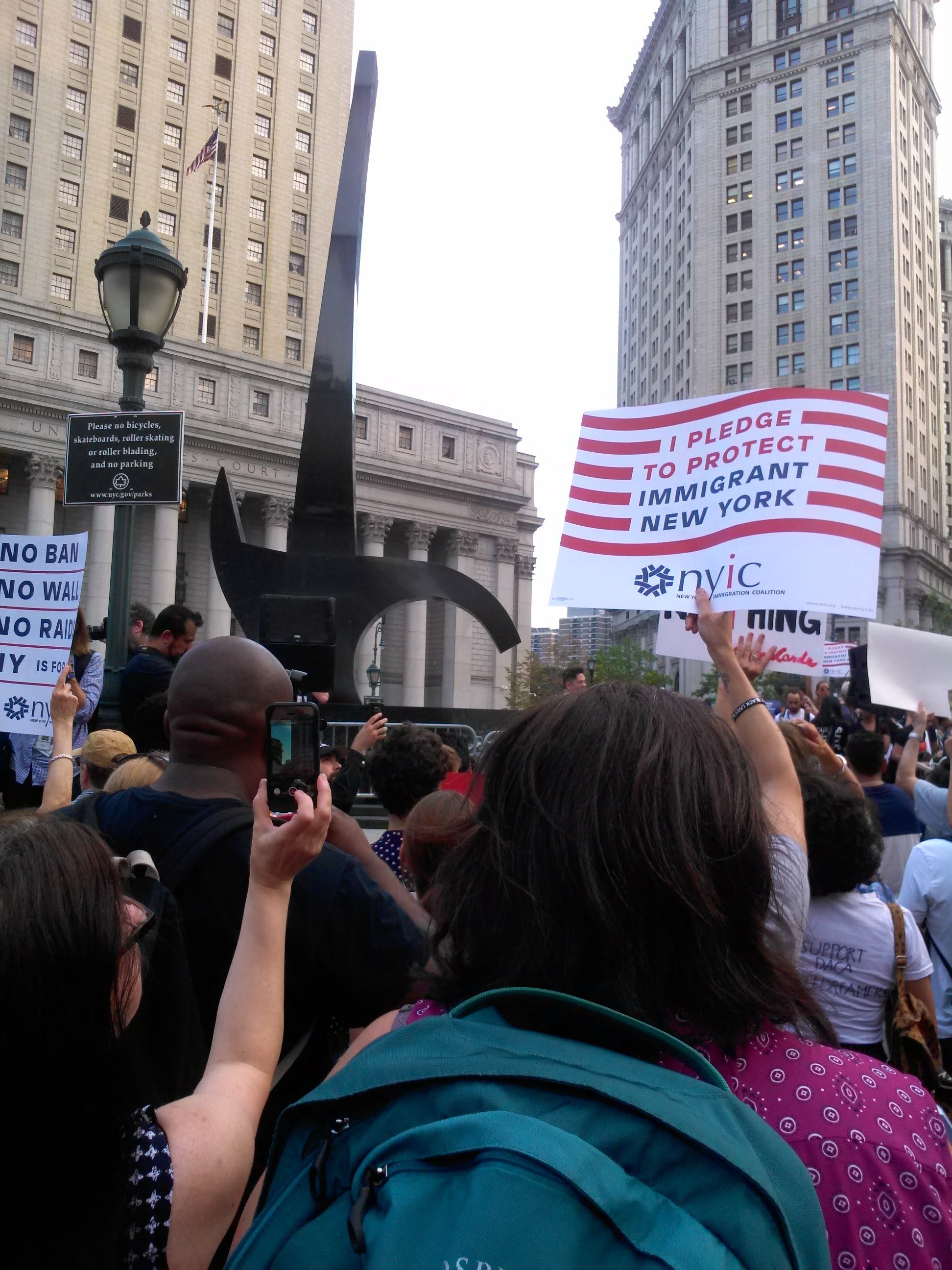Al Smith Never Had Sea Level to Worry Him
/Most mornings, I run around Lower Manhattan timed roughly to the sunrise. For several months it’s meant careering through pylons, Jersey barriers and construction fences as city and private workers take to buffering the waterfront from rising seas. Call it a daily preview and status check of adaptation in the world’s richest country’s biggest city.
Sometimes a Romantic fade to blue sky or similar light show spurs me to stop and frame a picture on my phone. Today, chugging through Alfred E Smith Playground next to the school where my daughter went to pre-K, I photographed the statue of this former governor and presidential candidate as he seemed to look toward a church across the street.
Smith, a first-generation American, grew up nearby and built his political legend by working hard to refashion government as a more-or-less competent servant to all people. He rooted out inefficiencies but never demonized business. He wanted his constituents to work. In this way, he could sing in harmony with President Biden and the many (correct) public officials who see the construction and deployment of clean energy as sparkplugs for decent, honorable work throughout American classes and counties. (The same can go for civil-engineering public works to temper unlivable heat and floods.) But the confident twinkle Smith got from his sculptor would likely turn to a squint today.
He’d have to address the people with bad information, on whom bad actors plant the bad idea that climate survival conflicts with commerce and comfort. And he’d have to grapple with the fact that transforming the physical world moves at a slower tick than the climate changes.
The scaffolds and pylons under the highway nearby hew to a project aiming to blunt sea level rise. (The highway above the work takes its name from Franklin D. Roosevelt, who beat Smith for president and squelched his political model. The memorials coexist peacefully.) It’d be spoiled to complain that this work “takes so long,” especially when I see the workers in hardhats doing it while I run by. But it’s sober to note that it does take a long time - while campaigns still spit out campaign promises on the regular.
If today’s hero-makers want politicians to project a sense of confidence, they’ll wisely tune their ears to calls for patience and explanations about process. FDR ventured that the only thing we had to fear was fear itself, unaware as he was of wildfire smoke or rainstorms that flood houses or social-media bots. Smith, though Roosevelt backhandedly saluted him as “the happy warrior of the political battlefield,” governed in some ways as more of a realist.
And on mornings between trash and implementation, when temperature swings in double-digit directions from one day to the next, I’m inviting us voters to focus on the horizon while both insisting that we change our foundation and realizing we’ve got a long way to look before things look stable.










